August Specialty Camps 2026
Specialty camps are great for riders who want to take their learning beyond a typical camp experience. Riders have the opportunity to go deeper into a specific discipline, continue to build a strong foundation for riding, and advance their horsemanship skills.
Reach out to us to see which Specialty Camp is the right fit for you!

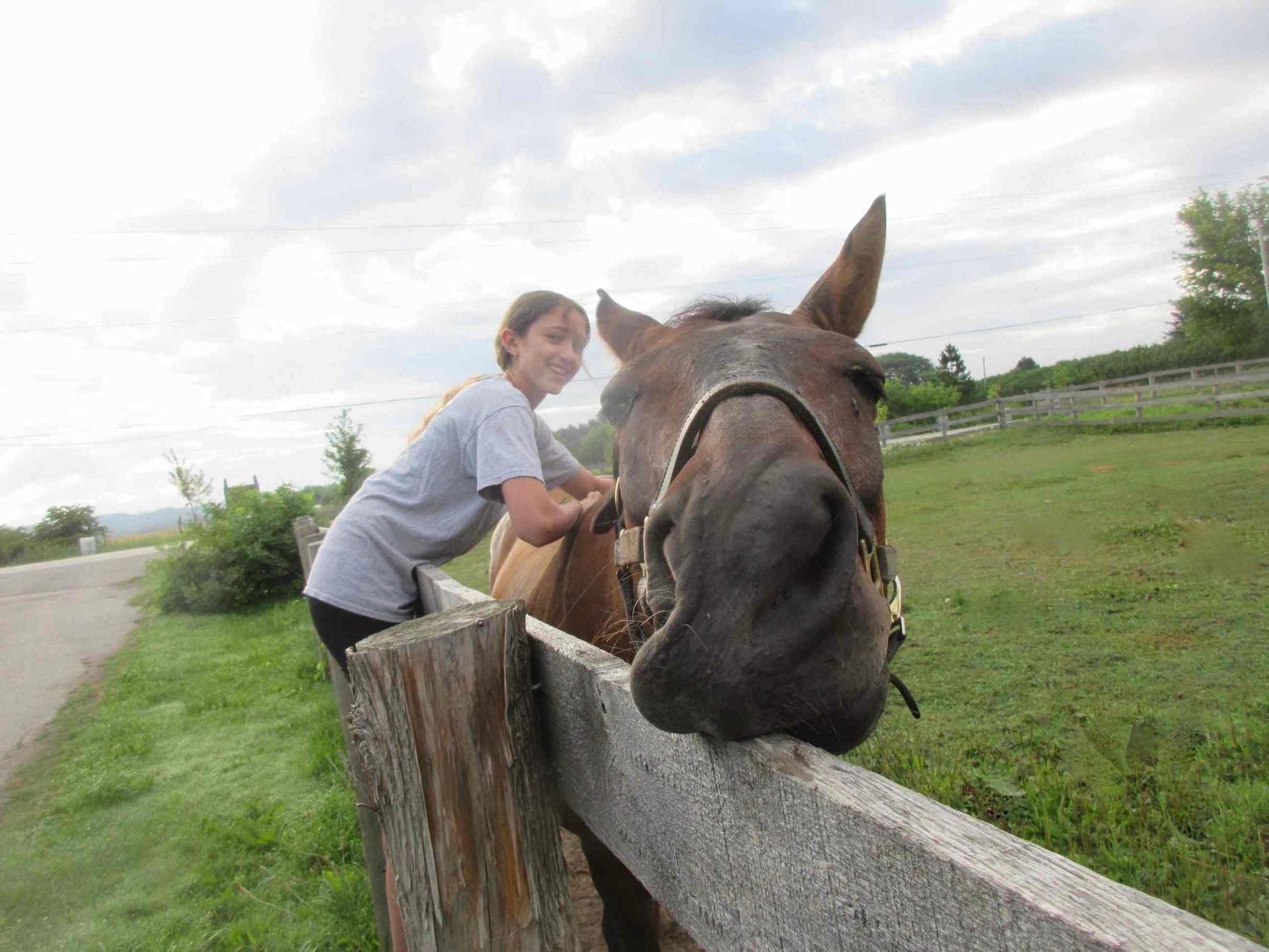
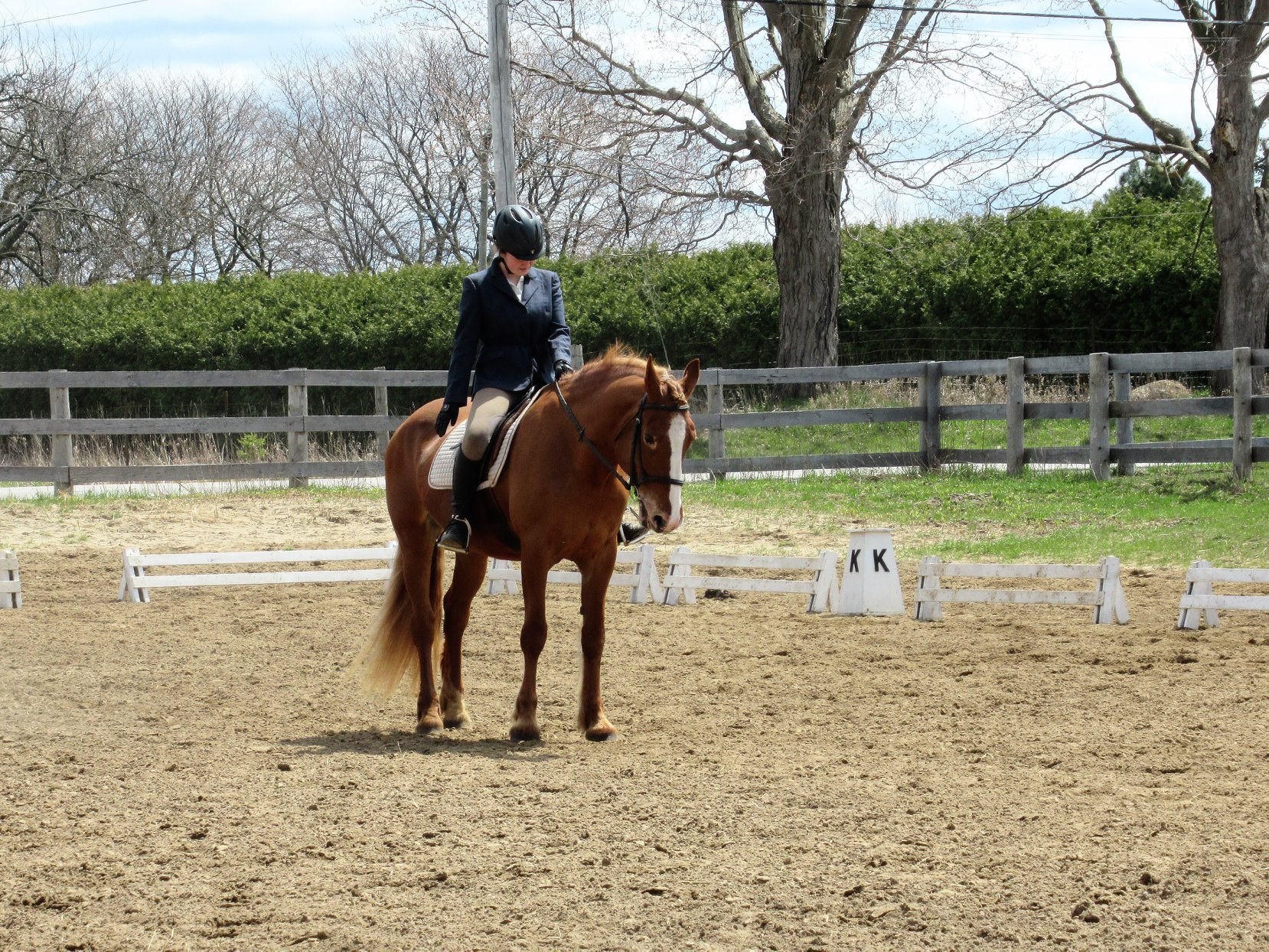
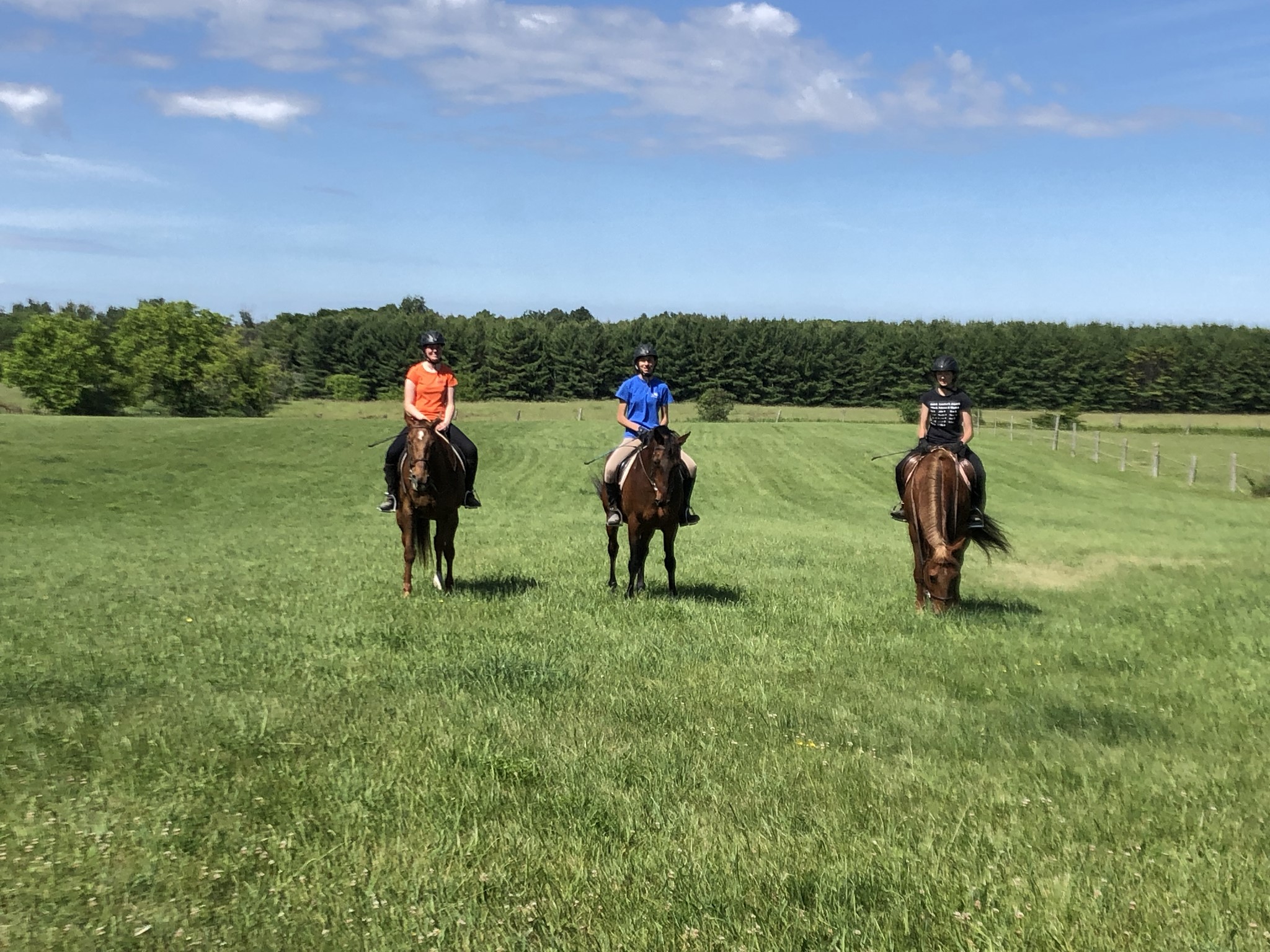
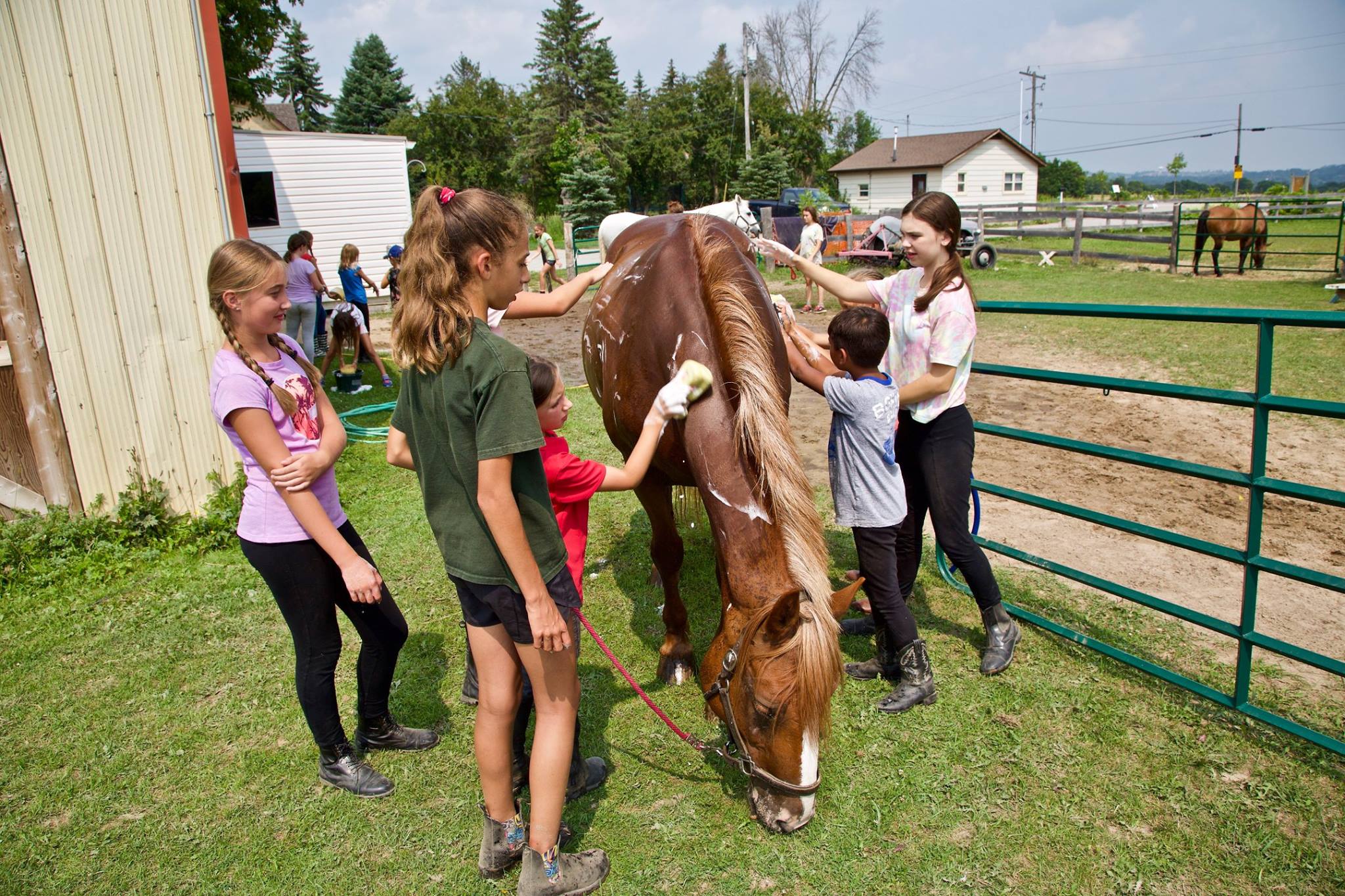
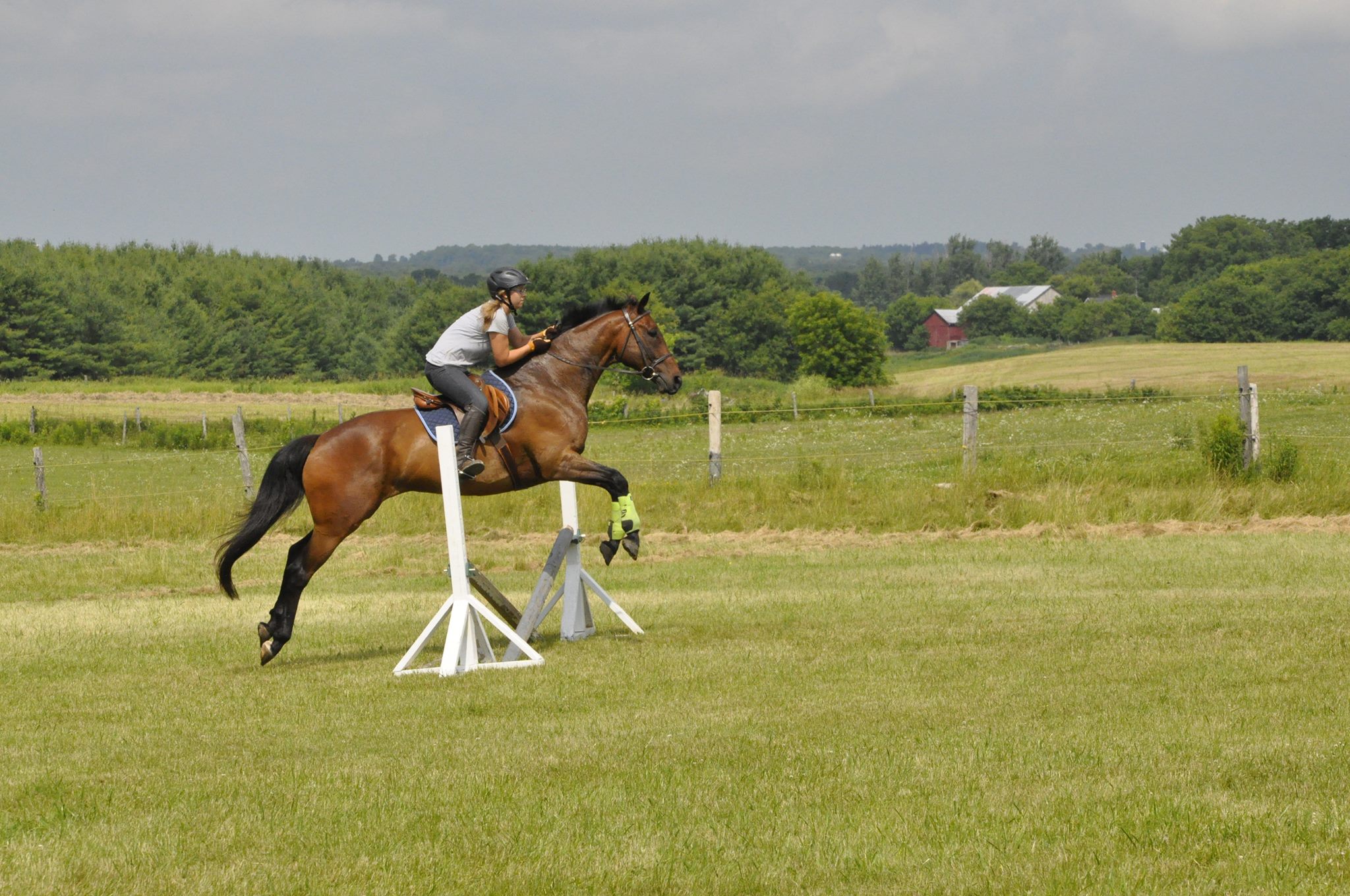
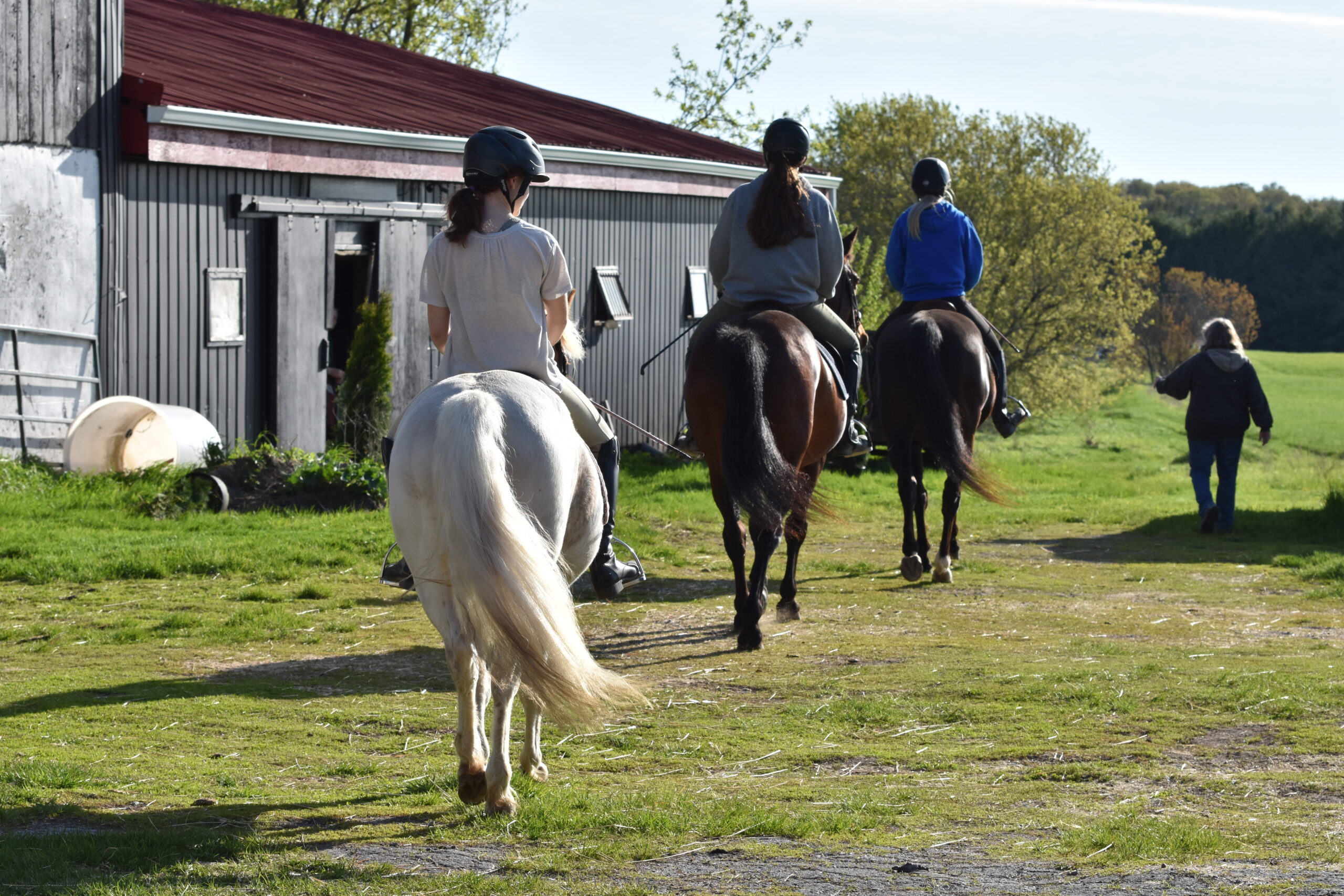
All Specialty Camps have a limited number of participants
to offer a more personalized, one-on-one experience for riders.
What You Can Expect
Dressage Camp (August 4-7)
In this 4-day intensive program, students will go through the “training pyramid” to deepen their understanding of the principles and values of classical horsemanship. Dressage training will result in a happier, more harmonious relationship with their horse. Students will get their own horse for the week and will work on improving their connection through clarity, understanding, and proper training. On the last day of camp, riders will participate in a mock dressage show where students can put their skills to the test in the dressage ring and get helpful feedback to improve their tests. Because dressage is the foundation of every aspect of riding, this camp is perfect for students who are looking to refine their skills, including riders who are not yet jumping and want to practice correct habits to support their long-term goals.
Horse Ownership Camp (August 10 – August 14)
We’re sure that your young rider has asked for their own horse a thousand time, and Horse Ownership Camp is designed to allow them to experience what it’s really like. This immersive camp gives riders a realistic, hands-on look at horse ownership as they care for and ride twice a day, giving them extra saddle time and a chance to build an even deeper connection with their horse. Throughout the week, experts in various fields of horse care will visit the barn to share their knowledge with budding horse owners. Campers will learn essential skills including daily care, stable management, nutrition, basic first aid, tack and equipment, and how to recognize changes in health and behaviour. From mucking stalls and feeding, to riding and taking daily vital signs, riders gain a true understanding of the responsibility, routine, and dedication that horse ownership requires. This camp is ideal for riders who want a deeper, more meaningful horsemanship experience and to scratch that itch of having a horse of their own.
Cross Country Camp (August 17 – 21)
Cross-Country Camp at Harrogate is designed for riders who want to experience the challenges of riding outside an enclosed area and try a discipline they don’t typically get to explore in regular lessons. With expert instruction from Pat, whose discipline of choice was cross-country riding, riders learn how to make smart decisions for themselves and their horse, develop balance and control in open spaces, and ride with confidence.
Pat brings decades of experience to this camp, having worked for a three-day event Olympian in the 1980s and witnessing firsthand the training, standards, and preparation required for successful cross-country riding. That knowledge is integrated throughout the camp as riders practice riding in open terrain, up and down hills, and navigating natural obstacles in a safe environment. On the final day, riders put all the pieces together and ride a cross-country course – an exciting and rewarding grand finale of everything they’ve learned.
Harrogate Hills Specialty Camp Cancellation Policy
Upon registration, a non-refundable deposit of $300.00 per session is required to secure a spot.
Any cancellations received 15 days or more before the start date of the camp session are eligible for a refund of their camp fees minus the non-refundable deposit of $300.00.
Any cancellations received between 8 days and 14 days before the start date of the camp session are eligible for a refund of 50% of their camp fees minus the non-refundable deposit of $300.00.
Any cancellations that are requested 7 days or less before the start of the camp session are not eligible for any refunds.
There are no refunds for missed days of camp.
*Emergencies happen, and we will always try to accommodate the need to change from one session to another, given appropriate notice and if there is space available.
